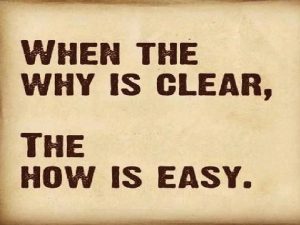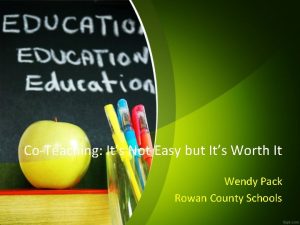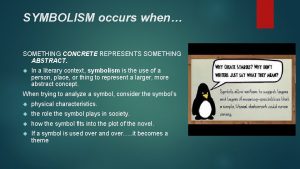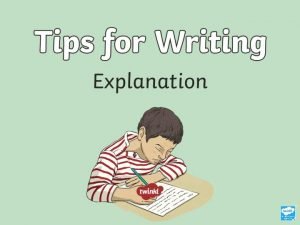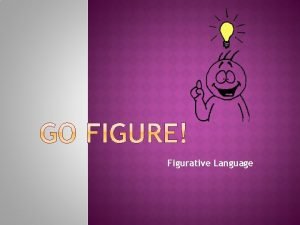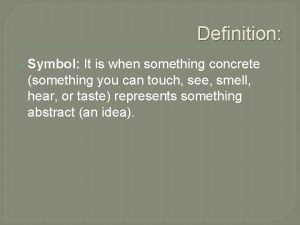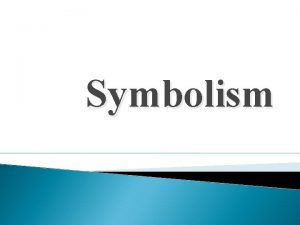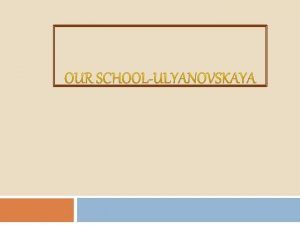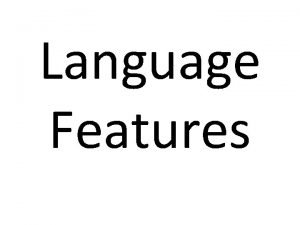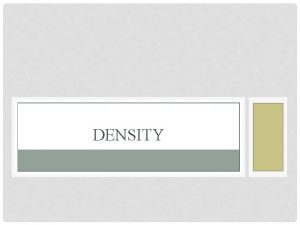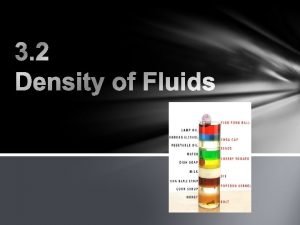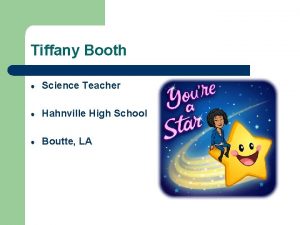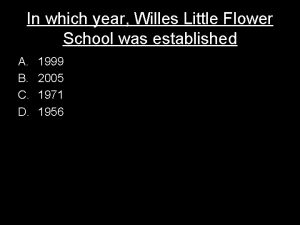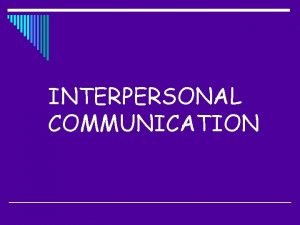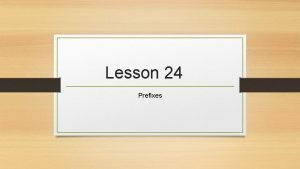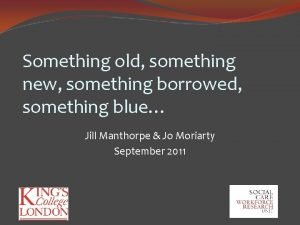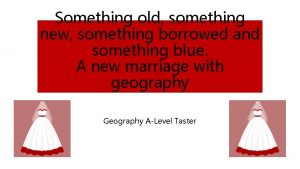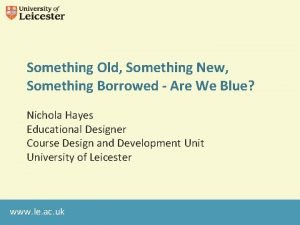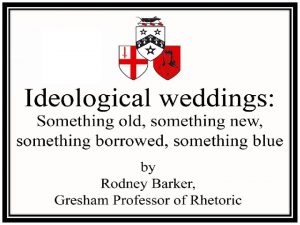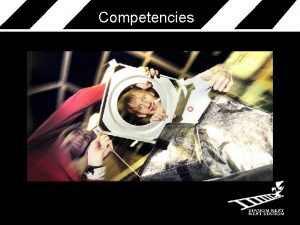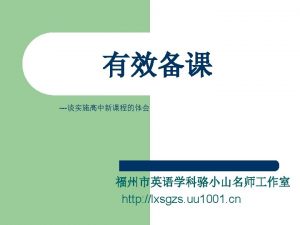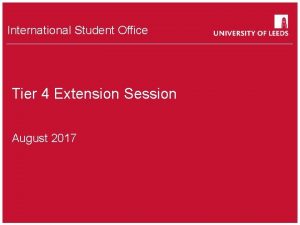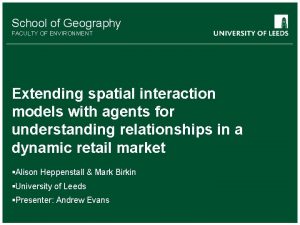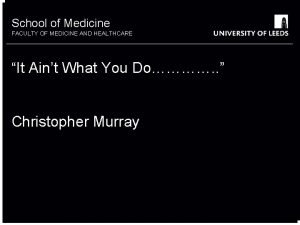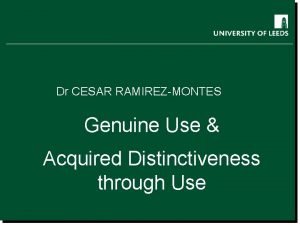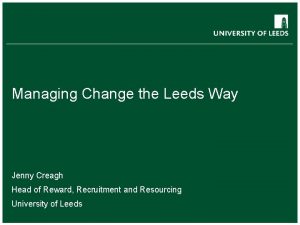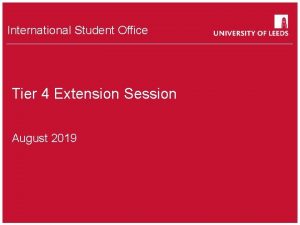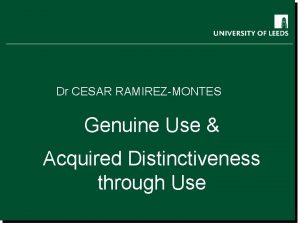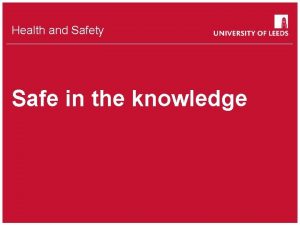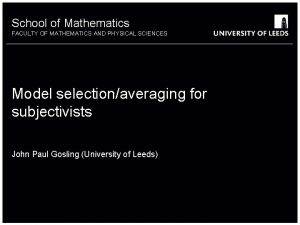School of something FACULTY OF OTHER Its not
















- Slides: 16

School of something FACULTY OF OTHER It’s not just about language: the Leeds content-based pre-sessional Outline Motivation for the content-based approach The course Jane Brearley, Language Centre • Structure of the new programme Elaine Lopez, School of Education • The academic content • The language seminars Reflections, thoughts and comments University of St Andrews 27 February 2016

Background Changes to UKVI policy • Courses below degree level (e. g. Foundation IFY and pre-sessionals) require applicants to hold an IELTS from an approved SELT centre to make a successful visa application. • There is only a limited number of UKVI approved SELT centres globally. • HEI admitting students to study at degree level or above are allowed to choose their own way to assess the student’s English language competence. • If a pre-sessional course is offered as part of the degree course (e. g. taught master) then it can benefit from the same discretionary arrangements.

Why are we doing CBPS? q UKVI q Single CAS q. Secure IELTS needed for short-term courses q Integration with academic departments

What is the change? –programmes now Current Summer Programmes 10 Week intake (July): Academic English Business Management Academic English Postgraduate Study Academic English Undergraduate Study General English (no progression) 6 Week intake (August): Academic English Business Management Academic English: Inter. Comm (for Media/AMC). Academic English Postgraduate Study Academic English Undergraduate Study General English (no progression) Pass for progression

And in future? What will it look like? First four week strands Business Social Science and Arts Science and Engineering A Six week strands Content Lecture 1 Language Seminars Content Lecture 2 Language Seminars Content Lecture 3 Language Seminars (Input) (Working with input) Automatic progression

10 week and 6 week 10 Business Social Science and Arts Science and Engineering A 6 Course Strand 1. 2. 3. Language for Marketing Language for Economics and Finance Language for Human Resource Management 4. Language for Business Management and Enterprise 5. 6. Language for Communication and Society Language for Arts and Humanities 7. 8. Language for Law and Society Language for Education 9. Language for Science and Engineering B

Academic Input • Three two-week ‘modules’, each centering around one core (2 hour) input session • Reading lists and input (e. g. lecture) • Emphasis on what students will encounter: • Types of text • Modes of presentation • Outputs expected • Participation expected (academic available half a day a week for questions etc. )

Academic leads have been asked to give: The overall title/topic of the course strand Brief description of the content of the strand For each module of the strand: 1, 2 and 3 • Lecture title • Brief description of lecture • A core reading list (up to 5 texts) A suggested reading list (wider; items not listed in the Core Reading)

Academic leads have been asked to give: • An indication of any particular • An indication of which type of useful focus writing is most appropriate • quantitative research methods • extended essays • qualitative research methods • case studies • reading of complex theoretical texts • lab reports • reflective writing • reading of empirical studies • exam answers • reading of non-academic texts (please explain) • other • poster presentations • other presentation skills • ability to work in groups

Criteria and constraints • No overlap with the content of any existing modules • Of interest/ relevance to students across the School of Education and Linguistics (not just TESOL)

Developing Academic Input 1. Choosing topics • Focus on research interests • Help from administrators • Conversations with School of Education colleagues • Conversations with the Language Centre • Selecting appropriate readings 2. Developing the content • Writing the lectures and essay questions • Advising LC colleagues on content/development/materials

The language seminars LEARNING OUTCOMES LANGUAGE FOR EDUCATION On completion of the module, students should: Language Acquisition: an introduction to learning and cognition Be able to use and manipulate written and spoken academic language to suit a clear communicative purpose, including having a wide lexical resource, a range of appropriate structures and the ability to use these coherently, accurately and fluently Module 1: Child language learners (outline and reading) Module 2: Studying second language learning (outline and reading) Module 3: The effect of working memory on language learning. (outline and reading) Tasks Have begun to develop an awareness of subject specific genre, discourse and rhetorical function; making appropriate choices in relation to audience and purpose at whole text, paragraph and sentence level Have begun to develop an ability to follow subject specific academic conventions in both spoken and written tasks, such as referencing, citations, synthesising sources and their own argument, meeting task requirements, turn taking and building collaborative understanding Assessed essay (titles set by academic lead: Be developing a critical approach to their own work and the work of others through use of a range of sources, counter-argument modules 1 and 2) and/ or evaluation; development of an argument with a clear Assessed presentation (an area of interest in position the individual student’s subject specialism/ a topic in relation to the lectures) Be able to work effectively with others on a discipline specific task; Assessed reflective writing consists of two texts (300 words minimum) on (1) choice of essay title and (2) the essay writing process Have begun to critically reflect on their own learning and demonstrate awareness of resources and techniques they could employ to continue their own development Be able to communicate an awareness of the cultural and ethical issues of academic study within the field of Education

The language seminars LANGUAGE FOR ARTS AND HUMANITIES Theme - Thinking Lecture 1: On thinking. (outline and reading) Lecture 2: On thinking and creativity. (outline and reading) Lecture 3 : Reflection (outline and reading) LEARNING OUTCOMES On completion of the module, students should: Be able to use and manipulate written and spoken academic language to suit a clear communicative purpose, including having a wide lexical resource, a range of appropriate structures and the ability to use these coherently, accurately and fluently Have begun to develop an awareness of subject specific genre, discourse and rhetorical function; making appropriate choices in relation to audience and purpose at whole text, paragraph and sentence level Have begun to develop an ability to follow subject specific academic conventions in both spoken and written tasks, such as referencing, citations, synthesising sources and their own argument, meeting task requirements, turn taking and building collaborative understanding Tasks Be developing a critical approach to their own work and the work of others through use of a range of sources, counter-argument and/ or evaluation; development of an argument with a clear position Essay Be able to work effectively with others on a discipline specific task; Presentation Have begun to critically reflect on their own learning and demonstrate awareness of resources and techniques they could employ to continue their own development Reflective writing/Rationale Be able to communicate an awareness of the cultural and ethical issues of academic study within the field of Arts and Humanities How will we get there? (Put yourself in the students’ place because of academic content)

The syllabus Part 1: On thinking – the concept of thinking and critical thinking Listening with a purpose - Reflecting on input - Note-making 1 LEARNING OUTCOMES Tasks Structure of texts - Finding the argument Presentation skills Part 2: On thinking and creativity. Note-making 2 - Thinking on paper - planning an outline Dealing with secondary reading - Sourcing texts - Summarising and paraphrasing Text structure - paragraph structure - coherence in texts - Building an argument Part 3: The use of reflection Reflection Group and peer practice - dealing with criticism. Supporting a point of view. Building autonomy - Developing academic self-awareness Using reflection for future action Essay Presentation Reflective writing/Rationale Seminars -Preparing your thoughts, preparing for seminars, discussing concepts, engaging in seminars On completion of the module, students should: Be able to use and manipulate written and spoken academic language to suit a clear communicative purpose, including having a wide lexical resource, a range of appropriate structures and the ability to use these coherently, accurately and fluently Have begun to develop an awareness of subject specific genre, discourse and rhetorical function; making appropriate choices in relation to audience and purpose at whole text, paragraph and sentence level Have begun to develop an ability to follow subject specific academic conventions in both spoken and written tasks, such as referencing, citations, synthesising sources and their own argument, meeting task requirements, turn taking and building collaborative understanding Be developing a critical approach to their own work and the work of others through use of a range of sources, counterargument and/ or evaluation; development of an argument with a clear position Be able to work effectively with others on a discipline specific task; Have begun to critically reflect on their own learning and demonstrate awareness of resources and techniques they could employ to continue their own development Be able to communicate an awareness of the cultural and ethical issues of academic study within the field of Arts and Humanities

Reflections, thoughts and comments • It’s not just about language • Helping the Language Centre • Controlled, systematic way to access departments and receive information about course content • Helping the academics • Internationalisation

Thank you for listening That is the end
 Smart is something you become not something you are
Smart is something you become not something you are Its not easy but its worth it
Its not easy but its worth it Only abstract things are symbolized
Only abstract things are symbolized What is the purpose of an explanation
What is the purpose of an explanation Open oven
Open oven Something concrete that represents something abstract
Something concrete that represents something abstract Symbol/symbolism definition
Symbol/symbolism definition Something old something new poem
Something old something new poem Is adjective a language feature
Is adjective a language feature Sadlier vocabulary workshop level d unit 1
Sadlier vocabulary workshop level d unit 1 How heavy something is for its size
How heavy something is for its size How heavy something is for its size
How heavy something is for its size Hahnville high school powerschool
Hahnville high school powerschool Willes little flower school faculty
Willes little flower school faculty Emory anticoagulation clinic
Emory anticoagulation clinic Interpersonal communication is contextual
Interpersonal communication is contextual Prefixes for believe
Prefixes for believe
